Page 3 of 9
Re: David Lazarus
Posted: Sun Nov 10, 2024 8:12 am
by Butterfly_Julian
Great work David, and even more amazing that you did it by public transport

You should consider doing a update to the book Butterflies of Essex by Brian Goodey & D Corke 1997 over the next few years.
It has always disappointed me the total lack of info on places to visit and spicies to see in Essex on Cambridge and Essex BC website, if you live in Cambridgeshire there is info. Maybe you could put something together for them to go on the website.
Well done David
Julian
Re: David Lazarus
Posted: Sun Nov 10, 2024 9:05 am
by David Lazarus
Butterfly_Julian wrote: ↑Sun Nov 10, 2024 8:12 am
It has always disappointed me the total lack of info on places to visit and spicies to see in Essex on Cambridge and Essex BC website, if you live in Cambridgeshire there is info. Maybe you could put something together for them to go on the website.
Thank you David & Julian - your comments are much appreciated.
I feel exactly the same Julian. The absence of information about butterflies and where to see them in Essex is very frustrating. This includes the data for recorded sightings which I know to be incomplete in terms of public access for some reason. I am working on providing up-to-date information. Whether it will be uploaded to our branch website or not is not my decision. I am also working on other projects in the background. I have 10 years and hope I can contribute to something similar to other counties which have excellent books and information such as Kent and Warwickshire.
Re: David Lazarus
Posted: Wed Nov 27, 2024 2:11 pm
by Butterfly_Julian
Hi David,
Thought this may be of interest, what 'The Butterflies of Essex' (1979) book has to say on the Wall in Essex.
The decline is shocking.
Julian
Re: David Lazarus
Posted: Wed Nov 27, 2024 4:37 pm
by David Lazarus
Butterfly_Julian wrote: ↑Wed Nov 27, 2024 2:11 pm
Thought this may be of interest, what 'The Butterflies of Essex' (1979) book has to say on the Wall in Essex.
The decline is shocking.
Thanks Julian, yes, it is shocking hence my interest. I have the book, and refer to it. Shame we haven’t got a more recent publication.
Re: David Lazarus
Posted: Wed Nov 27, 2024 10:02 pm
by Padfield
Just to clarify, when was that book written? The post says 1979 but the book refers to the 1990s.
Although I live abroad, the decline of the wall in East Anglia concerns and intrigues me greatly. It was a common butterfly throughout my childhood in Suffolk. As the extracts from the book say, it is common in Europe from south to north and in many places (much of Switzerland, for example) abundant. Its disappearance from wide swathes of the UK is really alarming.
Despite active searches, I saw none in my recent stint in Suffolk, from 2018-2022. A few years previously, on a visit, I had seen a single individual at Iken.
Guy
Re: David Lazarus
Posted: Thu Nov 28, 2024 12:45 am
by David Lazarus
Padfield wrote: ↑Wed Nov 27, 2024 10:02 pm
Just to clarify, when was that book written? The post says 1979 but the book refers to the 1990s.
The book was published in 1997 Guy but it is very dated and the data they use doesn’t really sit well with me. 500 recorders but there is a lot of self-praise for being the first book to provide 10km square mapping - not accurate enough for me so that the coverage makes it appear larger than it actually was. Plus, it seems to look at the difference between gardens and the countryside which is not important to me, especially when we are discussing a species like the Wall. And there is a focus on 3 sites that were former dumps, St. Osyth, Stour Wood, and Leigh Marshes which seems less important than the authors make out - they must have had their reasons.
But it has some nice descriptions of habitats, for instance, and as a historical record it has its value - remarkable for including species such as Grayling, Dingy Skipper and Silver-studded Blue which were all recently extinct in Essex at the time of the book’s publication.
Re: David Lazarus
Posted: Thu Dec 12, 2024 4:25 pm
by David Lazarus
Re: David Lazarus
Posted: Thu Dec 12, 2024 5:22 pm
by essexbutterflyer
Fantastic images David. Beautiful ringlet and small tortie photos - caught my eye!
Zayed
Re: David Lazarus
Posted: Fri Dec 20, 2024 7:15 pm
by Wurzel
A cracking collection of images there, nice way to brighten up the darkest, and the second longest night

Have a goodun
Wurzel
Re: David Lazarus
Posted: Sat Dec 21, 2024 9:06 am
by David M
Nice to see those Heath Fritillaries, David, and the open-winged Ringlet is a real beauty.

Re: David Lazarus
Posted: Sat Dec 21, 2024 10:41 am
by David Lazarus
essexbutterflyer wrote: ↑Thu Dec 12, 2024 5:22 pm
Fantastic images David. Beautiful ringlet and small tortie photos - caught my eye!
Wurzel wrote: ↑Fri Dec 20, 2024 7:15 pm
A cracking collection of images there, nice way to brighten up the darkest, and the second longest night

David M wrote: ↑Sat Dec 21, 2024 9:06 am
Nice to see those Heath Fritillaries, David, and the open-winged Ringlet is a real beauty.

Thank you, Zayed, Wurzel, & David - just a shame I didn't manage to get an image of the Brown Hairstreak to complete the set. So close, with a late season female flying within a metre of me but frustratingly not settling for a happy snap



. I am not sure I will ever get in the position to have an image of all 34 again given a few are not present in great numbers within Essex, and others are hard to capture with a mobile.

Re: David Lazarus
Posted: Mon Dec 23, 2024 11:48 am
by David Lazarus
The Butterflies of Essex
2024 Year in Review
Hesperidae
Small Skipper Thymelicus sylvestris
Summary
The Small Skipper is of least concern in the vice-counties of North & South Essex, and is a low priority for butterfly conservation. This is despite the loss of its preferred habitat across the agricultural dominated landscape of Essex. Intensive farming has destroyed unimproved grasslands, hedgerows, and other open space habitats with long grass. So, even though the Small Skipper is of least concern of extinction within Essex there is no doubt that locally it has become extinct with little chance of recovery. I would expect the abundance and distribution to have declined. It would be wrong to take our eye of this indicator species of unimproved long grass habitats - flailing has been of particular disappointment on my treks around the county this year.
The
2024 distribution of the Small Skipper, limited to recorded sightings, indicates that it can be found across Essex but there are large areas where sightings have not been recorded:
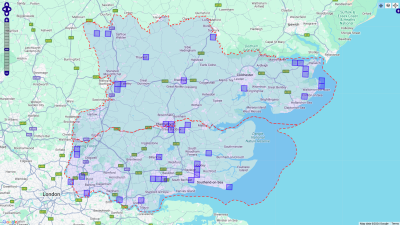
- 2024 distribution of Small Skipper within Essex
Source: Butterflies for the New Millenium
In context, the recorded sightings for the last 10 years shows more coverage but this does not indicate that they have disappeared from all these areas, just that no sightings have been recorded there during 2024 for a number of reasons:
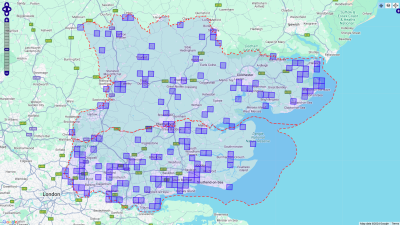
- 2014-2024 distribution of Small Skipper within Essex
Source: Butterflies for the New Millenium
Of particular concern are the more developed landscapes within the south-west of Essex, East London & the Thames Estuary which probably need surveying during the flight period of the Small Skipper. Unfortunately, I have not been able to fulfil this activity with the weather being a limiting factor as well as concentrating on butterflies of more concern during its flight period.
However, I did collect some useful data during my travels which will form the baseline for the next 10 years. The following distribution map indicates the site locations where I recorded sightings of Small Skipper:
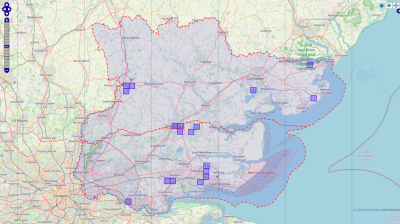
- 2024 site locations where Small Skipper was recorded
And the
abundance during 2024 at the site locations are as follows:
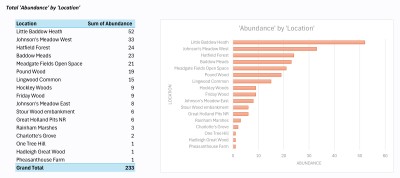
- 2024 Small Skipper Total Abundance by Location
Source: iRecord
A grand total of 233 which is not bad. Perhaps of more interest during this year of inclement weather was the start and finish of my sightings compared to the flight period for the Small Skipper across the whole of the UK:
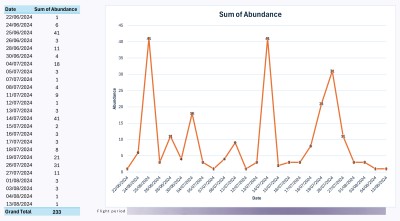
- 2024 Small Skipper Abundance over Time
Source: iRecord
My first sighting was not until the 22nd of June at my local meadow within Meadgate Fields Open Space. This was one day after the Essex Skipper but this probably reflects the fact that this particular site is dominated by Essex Skipper during the early stages of their flight period with the profile about 2-3 sightings to 30 Essex Skipper.
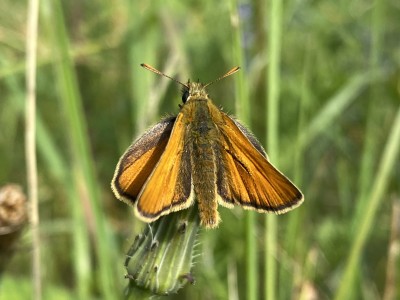
- Small Skipper male
Meadgate Fields Open Space 22/06/2024
Locally my final sighting was on the 08th of August adjacent to the Chelmer Road Bridge within Baddow Meads, with the final Essex sighting at Johnson's Meadow - West on the 13th August:
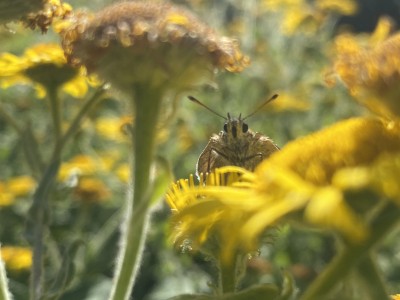
- Small Skipper female
Johnson's Meadow - West 13/08/2024
What the sightings do show is that the flight period across the sites that I visited was limited to 52 days from late June to mid-August. This may indicate that they emerged a week or so late and finished a week earlier than may occur during better years.
Highlights
The abundance over time does not show the flight period but highlights numbers at particular sites during the flight period. The season highlight in terms of recorded sightings was early in the season at One Tree Hill, Johnson's Meadows on the 25th June where I saw 41 in total across the site. This would suggest that they emerged earlier in the season on the south-facing slopes of Johnson's Meadows before I had a chance to visit. The most I saw locally was the 27 at Little Baddow Heath on the 14th July with a total of 41 on the day across the Danbury Ridge Nature Reserves. 12 days later on the 26th of July there were also 25 at Little Baddow Heath with a total of 31 on the day across the Danbury Ridge Nature Reserves.
Within Chelmsford, I recorded a total of 44 sightings across the flight period within Baddow Meads & Meadgate Fields Open Space in areas dominated, as already mentioned, by their cousins the Essex Skipper.
More details for South Essex and finally North Essex to follow
Re: David Lazarus
Posted: Tue Dec 24, 2024 5:43 pm
by essexbutterflyer
Evening David,
Very interesting data there! Can i ask where the data for reports of sightings is from? Is it iRecord? I'm surprised that there have been records from so few locations.
The Small Skipper seems to be doing much worse than the Essex Skipper here, in East London. Both were down this year. One of the "best" sites for them is at Wanstead Park, and Flats - where there are also Green Hairstreak. I may visit next year specifically to study the Skippers, should you find that useful?
Would you find transect data for East London sites useful, considering records are just Small/Essex?
Zayed
Re: David Lazarus
Posted: Wed Dec 25, 2024 12:34 pm
by David Lazarus
The Butterflies of Essex 2024 Year in Review continued
South Essex
The following locations are where sightings of the Small Skipper were recorded during 2024:
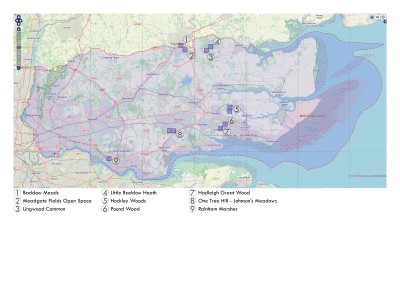
- 2024 Small Skipper recorded sightings
South Essex site locations
Baddow Meads & Meadgate Fields Open Space
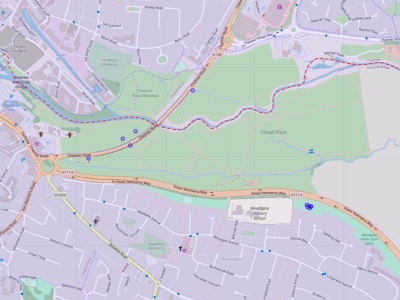
- Baddow Meads and Meadgate Fields Open Space
Within the River Chelmer floodplain there are two locations where Small Skipper can be found. The small meadow at Meadgate Fields Open Space is predominantly a tall forb wet grassland with long grass. There are also patches of low flowering plants, encroaching scrub - mostly brambles - and the site is surrounded by oak
Quercus robur which is also encroaching within the meadow. There is no management and this successional stage will be lost within 5-10 years if the woody plants are not cut back. It is currently sufficiently open to receive sun throughout the day and provides ideal conditions for skippers that flourish.
The other site is located on both sides of the Chelmer Road Bridge where the forb-rich grassland is left long unlike the rest of Baddow Meads which is cut to make hay. The plant community is similarly composed of tall forbs and long grass, with low-growing flowering plants providing the ground cover between the taller plants. It provides habitat for Small Skipper but could be so much better if the rest of the grassland was managed in a way that 30 % of the long grass was left by the use of a rotational cutting regime. It could potentially support a large colony in the 100s rather than adult sightings in the 10s.
During 2024 I visited these sites on my local patch very often but would only see one or two each visit apart from the 27th July when I recorded 11 at a time when they began to outnumber Essex Skipper for the first time. It was the only time I recorded double figures within the River Chelmer flood plain despite the ideal conditions. Numbers were certainly down from previous years.
Meadgate Fields Open Space - Small Skipper seen on 8 visits with the first one seen on the 22nd June and the last one on the 16th July. Total: 21
Baddow Meads - Small Skipper seen on 6 visits with the first one seen on the 14th July and the last one on the 08th August. Total: 23
22nd June: Meadgate Fields Open Space 1
see image above
30th June: Meadgate Fields Open Space 4
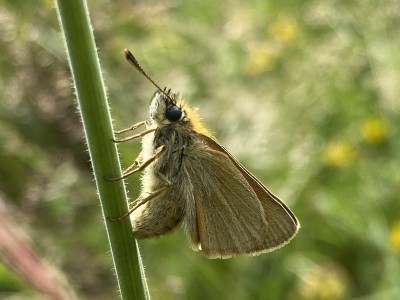
- Small Skipper female ovipositing
Meadgate Fields Open Space 30/06/2024
05th July: Meadgate Fields Open Space 3
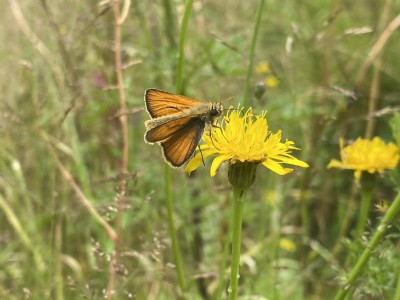
- Small Skipper male
Meadgate Fields Open Space 05/07/2024
07th July: Meadgate Fields Open Space 1
no image
12th July: Meadgate Fields Open Space 1
no image
13th July: Meadgate Fields Open Space 3
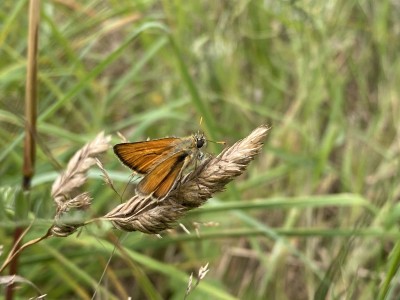
- Small Skipper male
Meadgate Fields Open Space 13/07/2024
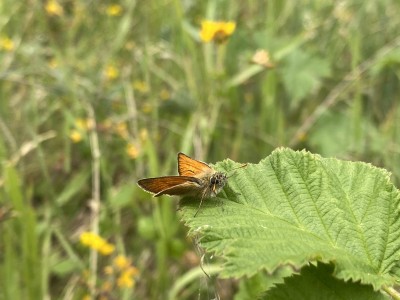
- Small Skipper male
Meadgate Fields Open Space 13/07/2024
14th July: Meadgate Fields Open Space 5
no image
14th July: Baddow Meads 3
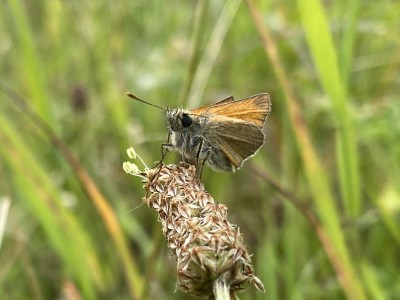
- Small Skipper
Baddow Meads 14/07/2024
15th July: Baddow Meads 2
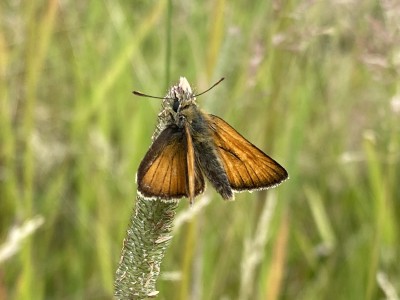
- Small Skipper male
Baddow Meads 15/07/2024
16th July: Meadgate Fields Open Space 3
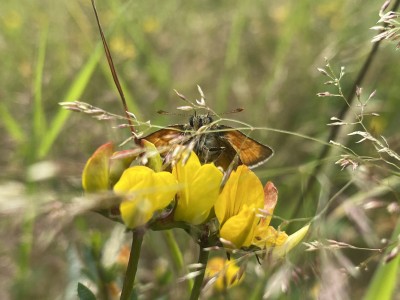
- Small Skipper
Meadgate Fields Open Space 16/07/2024
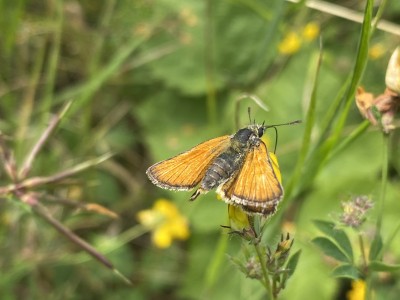
- Small Skipper female
Meadgate Fields Open Space 16/07/2024
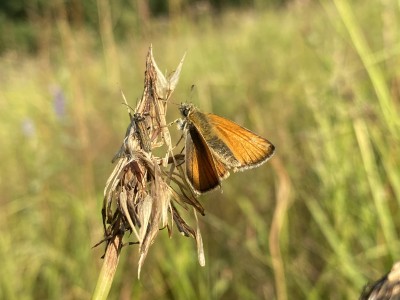
- Small Skipper female
Meadgate Fields Open Space 16/07/2024
27th July: Baddow Meads 11
no image
01st August: Baddow Meads 3

- Small Skipper
Baddow Meads 01/08/2024
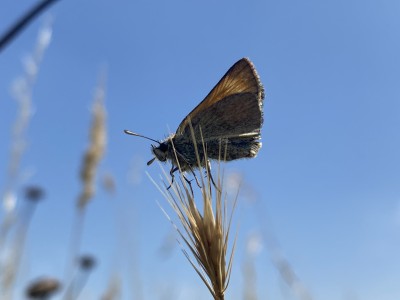
- Small Skipper
Baddow Meads 01/08/2024
03rd August: Baddow Meads 3
no image
04th August: Baddow Meads 1
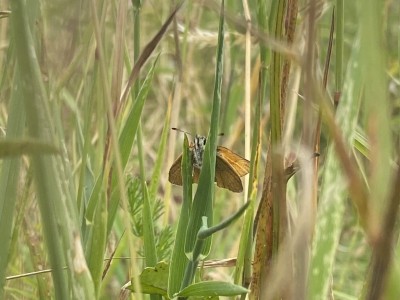
- Small Skipper
Baddow Meads 04/08/2024
Re: David Lazarus
Posted: Fri Dec 27, 2024 11:32 am
by David Lazarus
Lingwood Common & Little Baddow Heath
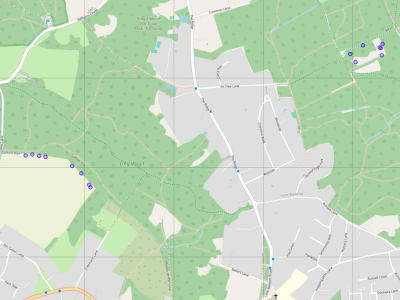
- Lingwood Common & Little Baddow Heath
Lingwood Common and Little Baddow Heath [SSSI] are part of the Danbury Ridge Nature Reserves managed by Essex Wildlife Trust and the National Trust. These reserves form a mosaic of woodlands, heathlands, commons, streams and bogs, and are composed of a diverse range of rich habitats for many species, including butterflies. Both locations support colonies of Small Skipper. These can be found along the field margins of Lingwood Common, and within a forb-rich meadow which forms part of the heathland glade at Little Baddow Heath.
Lingwood Common - Small Skipper seen on 3 visits with the first seen on the 08th of July and the last one on the 26th July. Total: 15
Little Baddow Heath - Small Skipper seen on 2 visits with the first seen on the 14th July and the last one on the 26th July. Total: 52
08th July: Lingwood Common 8
no image
14th July: Lingwood Common 6
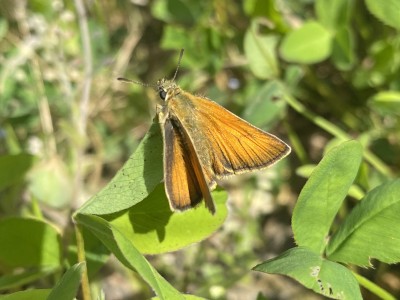
- Small Skipper female
Lingwood Common 14/07/2024
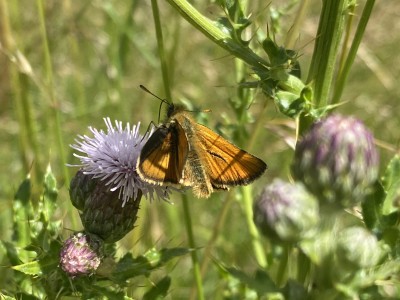
- Small Skipper male
Lingwood Common 14/07/2024
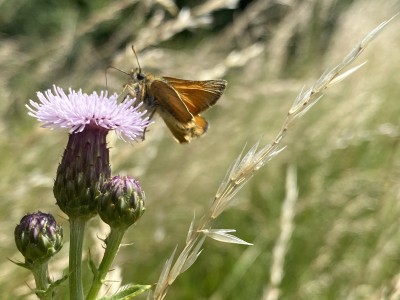
- Small Skipper
Lingwood Common 14/07/2024
14th July: Little Baddow Heath 27
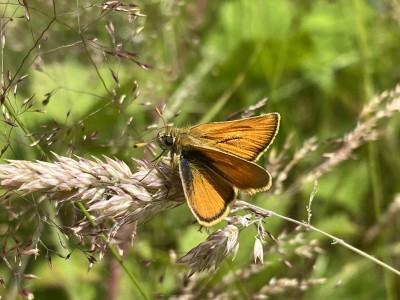
- Small Skipper male
Little Baddow Heath 14/07/2024
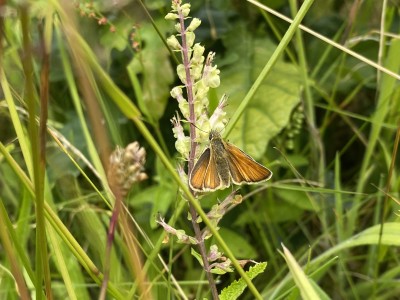
- Small Skipper female
Little Baddow Heath 14/07/2024
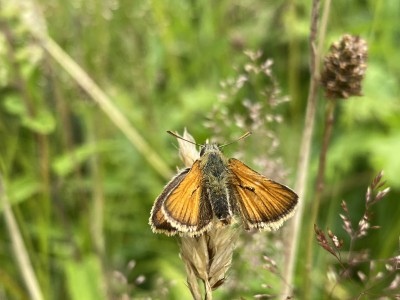
- Small Skipper male
Little Baddow Heath 14/07/2024
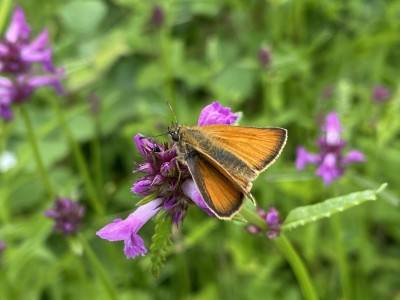
- Small Skipper female
Little Baddow Heath 14/07/2024

- Small Skipper female
Little Baddow Heath 14/07/2024
26th July: Lingwood Common 5
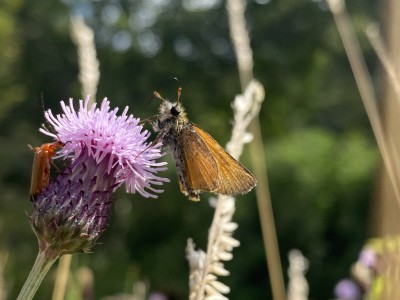
- Small Skipper female
Lingwood Common 26/07/2024
26th July: Little Baddow Heath
no image
Re: David Lazarus
Posted: Fri Dec 27, 2024 12:20 pm
by David Lazarus
Hockley Woods, Pound Wood, & Hadleigh Great Wood
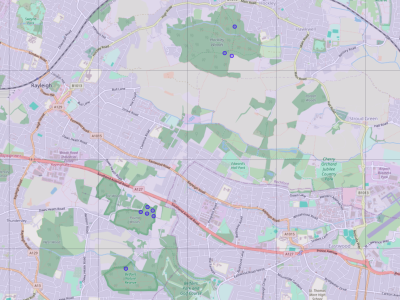
- Hockley Woods, Pound Wood, & Hadleigh Great Wood
Hockley Woods, Pound Wood, & Hadleigh Great Wood are the coppiced wet woodland that support the Heath Fritillary. The Small Skipper can be found in the field margins and rides of Hockley Woods, within the conservation area and glade at Pound Wood, and in one of the rides at Hadleigh Great Wood.
Hockley Woods - Small Skipper were seen on only one visit on the 04th July. Total 9
Pound Wood - Small Skipper were seen on the 28th of June and on the 04th July. Total 19
Hadleigh Great Wood - only one Small Skipper was seen on the 04th July. Total 1
28th June: Pound Wood 11
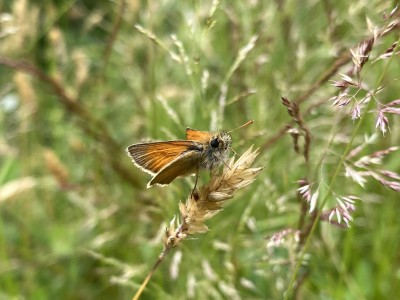
- Small Skipper
Pound Wood 28/06/2024
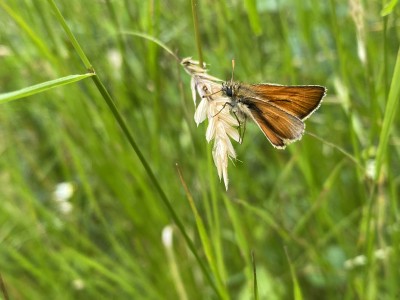
- Small Skipper male
Pound Wood 28/06/2024
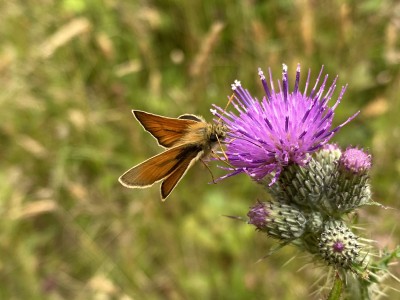
- Small Skipper male
Pound Wood 28/06/2024
04th July: Hockley Woods 9
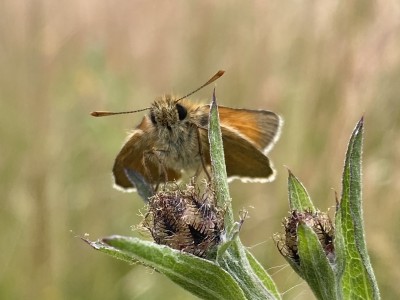
- Small Skipper
Hockley Woods 04th July
04th July: Pound Wood 8
no image
04th July: Hadleigh Great Wood 1
no image
Re: David Lazarus
Posted: Fri Dec 27, 2024 12:39 pm
by David Lazarus
One Tree Hill, Johnson's Meadows
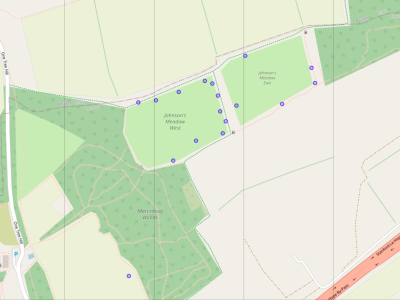
- One Tree Hill, Johnson's Meadows
Johnson's Meadows are two south-facing forb-rich open grasslands on the slopes of Langdon Hills which are important sites for fauna and flora. These conservation areas, with restricted access, support several butterfly species in good numbers as well as being the only place left within Essex that has a very tiny colony of Grizzled Skipper. Small Skipper form an important component of the meadow profile. There are also extensive open grasslands on both sides of One Tree Hill, but only a single Small Skipper was seen there.
Small Skipper were mostly seen on one visit to Johnson's Meadows on the 25th of June but unexpectedly I also saw the last one of the year there on the 13th of August. Total 42
25th June: 41
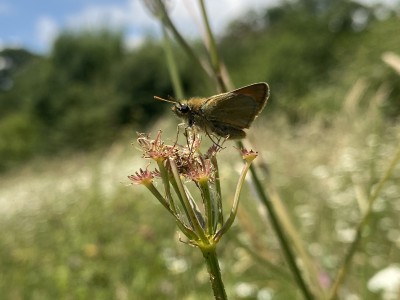
- Small Skipper
Johnson's Meadow West 25/06/2024
13th August: 1
see image above
Re: David Lazarus
Posted: Fri Dec 27, 2024 2:34 pm
by David Lazarus
The Butterflies of Essex 2024 Year in Review continued
North Essex
The following locations are where sightings of the Small Skipper were recorded during 2024:
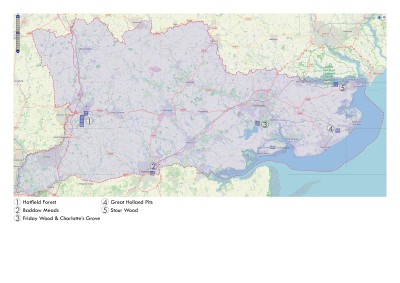
- 2024 Small Skipper recorded sightings
North Essex site locations
Hatfield Forest
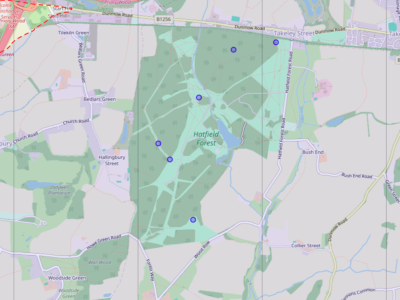
- Hatfield Forest
The Small Skipper can be found in the wider rides of the wooded areas within Hatfield Forest, and along the woodland edges with the open grasslands the majority of which is flailed short for hay production. The woodland rides tend to be of a damp nature with brambles and flowers of the daisy family along with thistles providing nectar sources. The grass is mostly left long within the rides and along the woodland edges.
Hatfield Forest - the Small Skipper was only recorded on two site visits on the 26th June and on the 19th July. Total: 24
26th June: 3
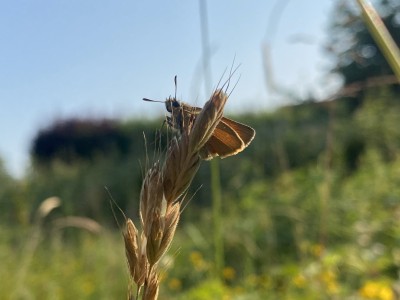
- Small Skipper
Hatfield Forest 26/06/2024
19th July: 21
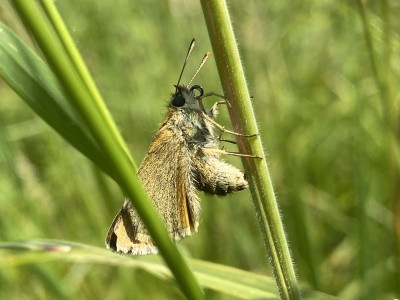
- Small Skipper ovipositing
Hatfield Forest 19/07/2024
Friday Wood & Cherry Tree Lane
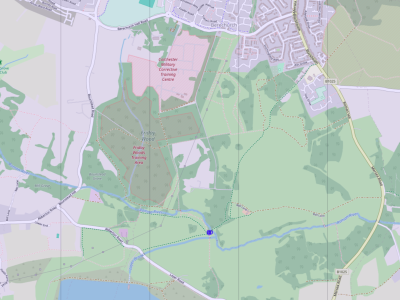
- Friday Wood & Cherry Tree Lane
Friday Wood and Cherry Tree Lane is a mosaic of open grassland, woodland, and riverine habitats. It is part of the Roman River Site of Special Scientific Interest which supports over a thousand species of moth and butterfy. All the Small Skipper that I saw were found within a biodiverse-rich habitat edge close to Charlotte's Grove which is composed of a marshy area adjacent to the River Roman and an open grassland.
Friday Wood - Small Skipper were only seen on 2 visits on the 11th and 18th of July. Total: 11
11th July: 9
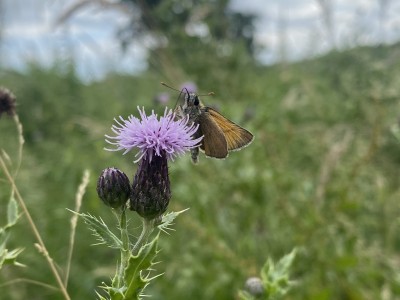
- Small Skipper
Friday Wood 11/07/2024
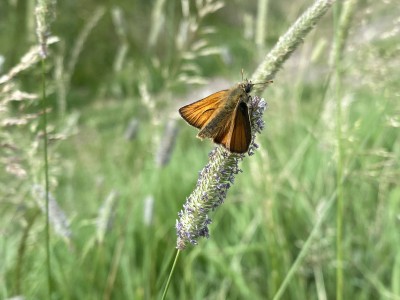
- Small Skipper male
Friday Wood 11/07/2024
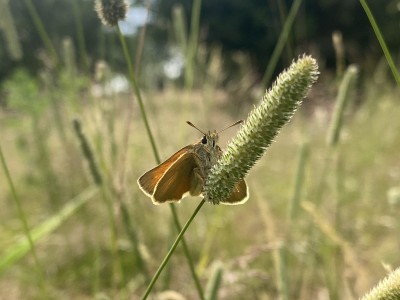
- Small Skipper
Friday Wood 11/07/2024
18th July: 2
no image
Great Holland Pits
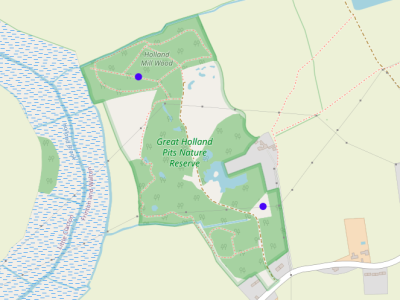
- Great Holland Pits
Great Holland Pits is managed by Essex Wildlife Trust with a warden who is passionate about providing a mosaic of woodland and open grassland habitats that support a wide range of butterflies, with some forb-rich rides and glades, and a couple of heathland habitats being the highlights. It is not especially blessed with high numbers of skippers but I found Small Skipper both in one of the rides and in the small heathland meadow.
Great Holland Pits - Small Skipper were seen on one visit only on the 18th of July. Total: 6
18th July: 6
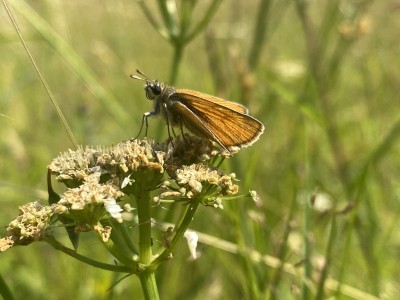
- Small Skipper
Great Holland Pits 18/07/2024
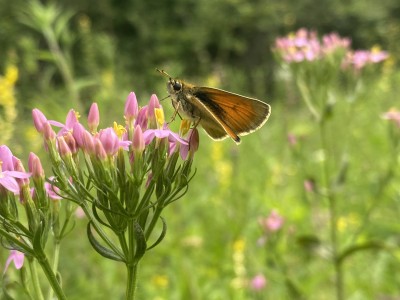
- Small Skipper female
Great Holland Pits 18/07/2024
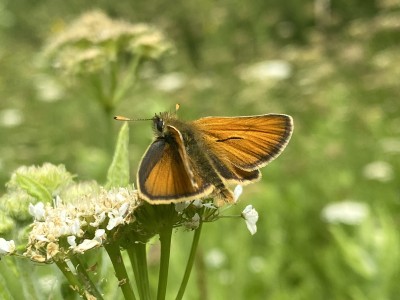
- Small Skipper male
Great Holland Pits 18/07/2024
Re: David Lazarus
Posted: Sat Dec 28, 2024 7:52 am
by PhilBJohnson
Hi David, super timing!
Nice photo, not capture (net or egg take) or shot (gun) of a Small skipper ovipositing on July 19th 2024, Hatfield Forest. Did you record, not just note (mental note) the species of grass she oviposited on?
The grass might of had a flowering head that was more easily distinguished & identifiable.
#LifeCycleVideo
Kind Regards,
